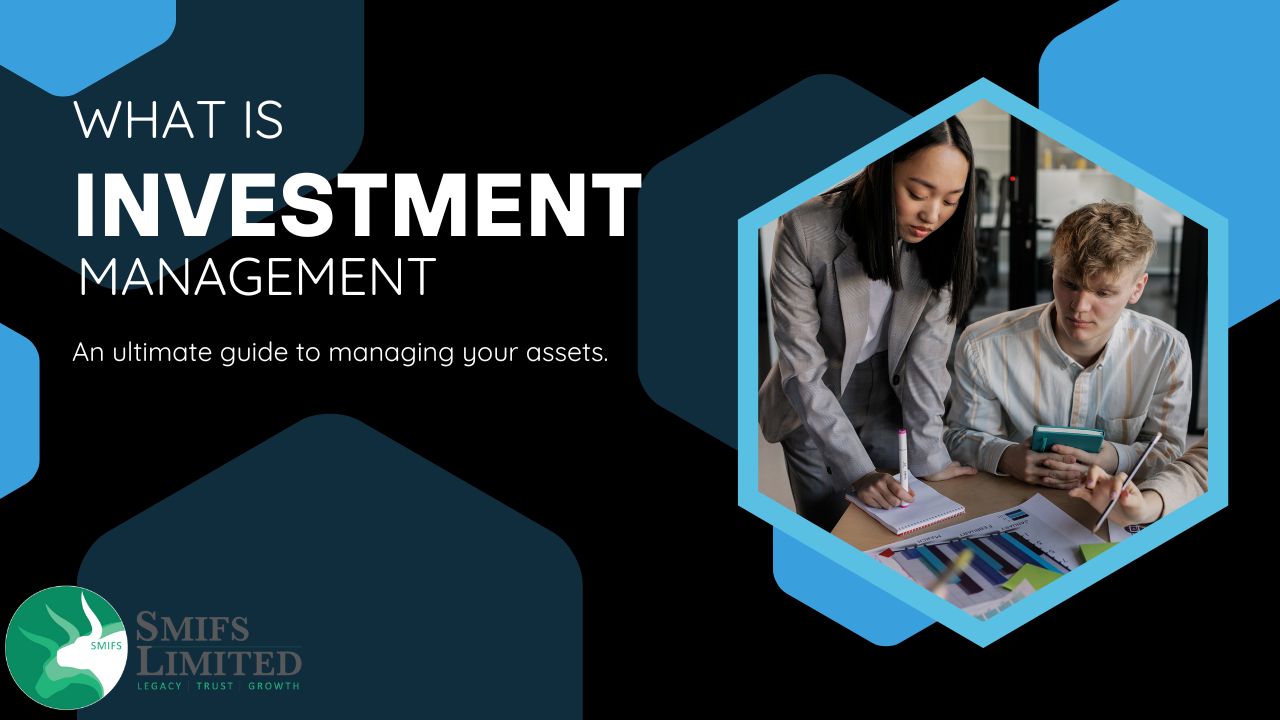The upkeep of an investment portfolio, or a collection of monetary assets, is known as investment management. It can involve buying and selling assets, formulating short- or long-term investment plans, managing the asset allocation of a portfolio, and coming up with a tax plan. You can handle your investments on your own or with the assistance of an investment manager. These assets can contain other commodities, although they are usually liquid or classified as securities.
Investment management requires creating a plan for purchasing and selling short- and long-term investments. The scope of its services also includes banking, budgeting, and tax services.
What are the objectives of investment management?
- Set objectives: An investment manager can assist you in identifying your financial goals and formulating a plan to achieve them.
- Increase profits: Investment managers focus on tax efficiency and liquidity while carefully managing portfolios to maximise returns and minimise losses over time.
- Evaluate and control the risks: Investment managers are required to regularly evaluate the level of risk they are willing to accept and how to handle it.
- Monitoring improvements: To enhance profits while minimising risks when needed, the manager will monitor market circumstances and modify the portfolio accordingly.
- Make certain investments: The manager will select investments that suit the needs of the investor by having a thorough understanding of various asset classes.
How does investment management work?
Understanding the workings of investment management is crucial. This can be quite helpful in assisting you in managing your finances and making wise investment and decision-making decisions.
Set Investing Objectives: Establishing your own financial goals and objectives is essential before you make a purchase. Factors such as your willingness to take on risk, your desired rate of return, the length of time you plan to invest, and any moral issues that can influence your choices should all be taken into account.
Examine and Select Your Assets: You must conduct research on the best investments for your portfolio after determining your plan. This entails researching certain stocks or other securities to find possible investment opportunities if you’re an active investor. While making a choice, you should take into account various aspects, including the competition, industry developments, and a company’s finances. In order to optimise future returns, passive investors who favour index funds must choose ones that support their objectives.
Adjust Your Portfolio: You should periodically assess the performance of your investments over time to see if any rebalancing is necessary. This entails modifying the portfolio’s asset allocation to maintain consistency with your aims and objectives. In addition to lowering risk, rebalancing can make sure you seize any market chances.
Monitoring Your Portfolio: It’s crucial to keep a tight eye on your investments once you’ve made them. This entails following any news that could affect the value of the markets and remaining knowledgeable about them.
Develop a Plan: Choose the approach that best suits your needs after determining your investment objectives. Depending on how much time and effort you wish to invest in the process, you can select between active and passive management methods. To beat market returns, active managers choose specific stocks based on their research, whereas passive investors put their money into index funds that simply track the moves of established market indices.
What does an investment manager do?
A person or business that oversees an investment portfolio on behalf of a customer is known as an investment manager. In order to accomplish a client’s goals, investment managers develop an investment strategy. Based on that plan, they determine how to allocate the client’s portfolio across various investment types, such as stocks and bonds. In addition to keeping an eye on the overall performance of the portfolio, the manager buys and sells those investments on behalf of the customer.
Along with offering comprehensive financial guidance on subjects including cash flow management, taxes, insurance, and estate planning, some investment managers double as financial planners. Others handle high-net-worth customers’ investment management and financial planning needs, in addition to arranging for the services of other experts like accountants and solicitors. This is frequently called wealth management. In addition to investment management, wealth management provides additional services like accounting, retirement planning, estate and tax planning, and more. Investment management might be useful if you require assistance selecting investments for your IRA. It would probably be overkill to manage wealth.
The tasks and responsibilities of an investment manager include the following:
- They provide specialised wealth growth and protection strategies in collaboration with individuals, families, and institutions.
- Investment managers manage investment portfolios and provide asset advice to clients.
- In addition to researching possible investments, they also keep an eye on the performance of already-made assets, assess market trends, design investment plans specifically for each client, and suggest modifications to help customers achieve their long-term objectives.
- Investment managers make decisions about the optimal way to distribute and invest capital in stocks, bonds, mutual funds, hedge funds, and other securities to maximize returns.
- They must be well-versed in investment techniques, financial markets, and current economic trends.
- In addition, investment managers have to maintain track of their client’s investments and send them frequent reports that summarise their performance over time.
- Investment managers assist customers in setting financial objectives and developing strategies to achieve them when it comes to retirement planning.
- In addition to helping students budget for their education expenses, investment managers also make sure that money is invested as tax-efficiently as possible. They also assist you in making large-ticket purchases like cars, real estate, and other products.
Investment management, sometimes referred to as asset or portfolio management, is a service that helps clients reach their financial objectives by expertly managing their assets and securities. It entails using a variety of tactics, carrying out in-depth studies, and keeping an eye on market developments. Investment managers guide customers through the complexity of the financial markets and help them maximise their assets. Investors should carefully consider their options and select an investment manager whose experience fits their particular risk tolerance and financial goals. They can greatly increase their long-term wealth and financial security with a well-managed portfolio.




